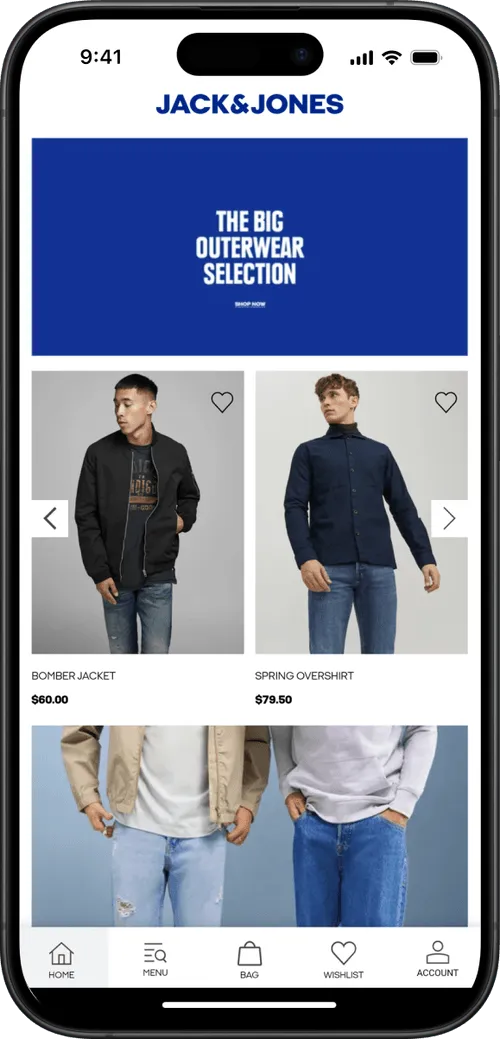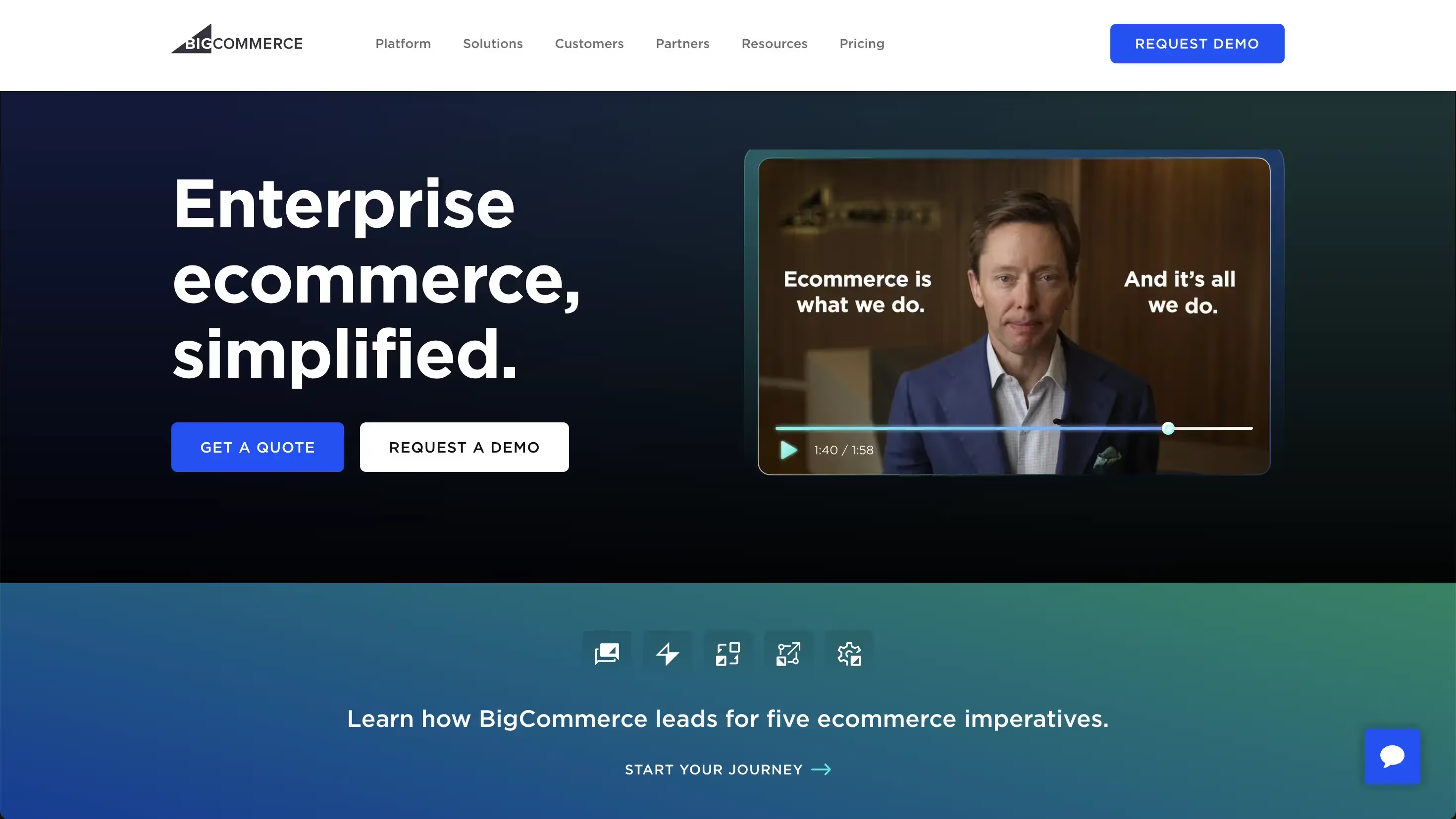The 6 Best Directory Mobile App Builders in 2026
- Our recommended directory mobile app builders include MobiLoud, Shoutem and eDirectory.
- MobiLoud is the best choice if you have an existing website for your directory, and want to convert it to an app that syncs with your website.
- To build a directory app from scratch, check out Shoutem, Builder.ai or several other options.
- MobiLoud can take your existing directory website and turn it into an app with all your existing backends and workflows intact. That way, you maintain one catalog and can keep everything in sync without any hassle.
- Our recommended directory mobile app builders include MobiLoud, Shoutem and eDirectory.
- MobiLoud is the best choice if you have an existing website for your directory, and want to convert it to an app that syncs with your website.
- To build a directory app from scratch, check out Shoutem, Builder.ai or several other options.
- MobiLoud can take your existing directory website and turn it into an app with all your existing backends and workflows intact. That way, you maintain one catalog and can keep everything in sync without any hassle.
Directory mobile app builders are a great way to turn your directory site into a mobile app, without spending a massive amount of money on developers.
Assuming your site is already mobile-friendly, it takes very little to turn your existing website into a mobile app.
Turning your site into an app will allow users more direct access to your platform, and provide a better user experience for mobile users.
Crucially, an app lowers friction for users, encouraging higher usage rates, and builds the retention your directory site needs to survive.
If you want to launch a mobile app, but don’t want to spend hundreds of thousands on app developers, keep reading. We’ll explain how to build a directory app without writing one line of code, using a directory app builder.
Our List of the Top 6 Directory Mobile App Builders
We’ve rounded up a list of the top directory mobile app builders available today.
Our list covers all possible use cases, from when you have a directory website already live (B2B, B2C, or a professional marketplace like Upwork), to building a directory app from scratch.
Here are six platforms to choose from:
- MobiLoud
- eDirectory
- Budibase
- Shotuem
- Builder.ai
- Fliplet
Now, on to the best directory app builders available today.
1. MobiLoud

MobiLoud will take your existing directory website and turn it into a mobile app, with no coding, no loss of key features or functionality, and minimal overhead.
MobiLoud specializes in converting websites into apps, no matter the platform (WordPress, Shopify) or tech stack (React, PHP, Ruby).
If you’ve already built a successful, mobile-friendly user experience on the web, you shouldn’t have to rebuild everything from scratch.
DIY app builders force you to adapt to limiting templates, and won’t let you fully recreate your web experience inside the app.
With MobiLoud, you’ll be able to keep all the features of your online directory in the mobile app, and manage both app and website from the same backend.
Any updates on your website will go live in your app immediately, allowing you to manage your app yourself, and make changes without keeping expensive mobile developers on staff.
MobiLoud is the best way to deliver a seamless transition from website to app, and launch a mobile app version of your website that looks and feels like a custom-built, million-dollar app, for a reasonable cost.
Pros
- Turns your existing directory website into a fully functional mobile app.
- No coding needed.
- Affordable, transparent pricing.
- No arbitrary limitations on features or integrations.
- White labeling is available in every pricing tier.
Cons
- Not able to build a directory app from scratch.
- Integrating with hardware features may not be possible.
Ready to learn more? Book a free consultation now to learn how easy it is to turn your directory site into a mobile app.
2. eDirectory

eDirectory is a platform specifically designed to help you build online directories.
One of their features is a mobile app builder, which gives you a no-code tool to publish your site as a mobile app.
The platform offers a drag-and-drop app builder, allowing you to build an online directory from scratch, with no coding.
You get all the features you would need for a directory app, including search and the ability to create customized directories of listings, events, classified ads, articles, and more. You can also add payment options, signups, and other options if you wish.
Once you are done building your app, you can choose to publish your app using your own iOS and Android app store accounts, or have eDirectory do it for you for a fee.
Access to the platform costs $199 per month (for the plan including the Android and iOS app builder), but requires a $1,499 one-time payment for access to your app’s source code.
Overall, eDirectory is a good choice if you are starting from scratch, without a website. If you already have a website, though, it won’t be able to integrate with your existing platform and workflows.
Pros
- Specifically tailored to building online directories.
- Lets you build a directory website and app together.
- Easy-to-use interface.
Cons
- Will not integrate with existing websites.
- Customization options are limited.
3. Budibase

Budibase is an app builder targeted at those with lots of data that they want to manage via an app, with directory apps a natural use case.
It is mostly tailored to in-house apps, though, and not public-facing apps.
One of the main highlights of Budibase is that it lets you start with datasets you already have, including spreadsheets, SQL databases, and other collections. That is useful if you have a lot of raw data, and your goal is to organize this information into a user-friendly UI.
You’ll use the app builder to create a UI, add custom workflows, and then deploy your app. There are templates available to you, with options including business directories, membership directories, and professional directories.
Budibase also lets you choose to use your own hosting infrastructure on Docker or Kubernetes, or you can use Budibase Cloud.
There is API functionality available, too, allowing you to use Budibase as a backend to tie in with other apps or services.
Pros
- Easy to integrate existing databases into a user-facing directory.
- Simple interface.
- API functionality.
- Easy to set up workflow automations.
Cons
- Best for in-house but not public-facing apps.
4. Shoutem

Shoutem is a highly-regarded, user-friendly and affordable no-code app builder, which can be used to create directory apps without coding.
You’ll start with a template, customize your app’s layout and navigation with drag-and-drop tools, and publish your app, all on your own.
The platform offers a wide range of features, providing all the basics you’d need in a directory app, including rich media, push notifications, analytics, search and filtering, user accounts and more.
You’ll manage your app through their in-built CMS, with cloud storage through their platform.
Shoutem’s app builder platform is quite affordable, at $49-$149 per month, and they offer the option of a managed app build for $1,499.
Shoutem is another good option for businesses who want to build a directory from scratch, particularly those who aim to be app-first.
Pros
- Easy-to-use app builder.
- Directory-focused features available.
- Affordable solution.
- CMS, hosting, storage all included in the price.
Cons
- Limited design flexibility.
- Won’t integrate with your existing website.
5. Builder.ai

Builder.ai is a DIY app builder that leverages AI to build your app, as the name implies. It offers all you need to build straightforward B2B and B2C directories.
You start with a template, customize it by adding pre-built features, choose whether to ship it for Android, iOS, web or a combination of the three, and then pass it on to their team to construct the working app.
You can choose how fast you want the app delivered. A more relaxed timeline costs less, while you can pay more to get the app quicker.
Pricing varies depending on the timeline you choose, as mentioned above, as well as the features included in your app, and which platforms you decide to build it for.
There’s no clear pricing information available on their website, as you’ll need to supply your feature requirements to them so they can provide you with a quote.
Pros
- No coding needed, wide range of templates available.
- Flexibility with development timeline, features, and associated cost.
Cons
- Won’t integrate with your existing website.
- Limited by what their templates and pre-built features allow.
6. Fliplet

Fliplet is a multi-solution no-code app builder, with templates and features allowing users to build many different types of apps, without coding.
For directory apps, it supports listings, reviews, search and filters, and the other features you would expect.
Though you can build your app for Android, iOS and the web, and it states that it’s built for public use, it’s more well suited for internal company apps, like employee directories.
Fliplet charges by number of app users – you’ll pay $247.40 per month for 1,000 users on their standard plan, or $469.90 per month for the next level up with more advanced features. More users, higher cost.
The pricing structure means it can get expensive if you have a large user base, another reason why it’s better suited for internal directories that a limited number of people need to access.
Pros
- Simple interface with pre-built templates ready to go.
- Supports web, iOS and Android, starting from a very cheap price.
Cons
- Gets expensive if you need your app to be accessible by many people.
- Very limited customization options.
- Not a good fit for commercial apps.
Want to build a directory app with eCommerce features? One of these eCommerce App Builders may be a good fit for your project.
Choosing the Right Directory Mobile App Builder
We’ve presented a variety of options to choose from above.
Realistically, the best directory app builder will be different from case to case.
A service directory app has different feature requirements than a B2B directory, or a B2C directory, a professional directory or an in-house employee directory.
Consider what features you need, any other requirements (such as time, budget), and how comfortable you are with each tool.
If you’ve already built your directory as a website, and want a way to convert it into a mobile app, we recommend MobiLoud.
MobiLoud is the best way to create unique apps, that aren’t limited by stock templates and pre-built features, that perfectly recreate all your website features in the form of a mobile app.
You’ll get all the best parts of an app, such as native navigation UI, a home screen icon and app store listing, and push notifications, while retaining everything that makes your website great.
Best of all, it takes little to no effort to launch (and maintain) your app, and the app will be fully synchronized with your website.
If you need to build an app from scratch, try a platform like eDirectory, Shoutem or Builder.ai.
But if you need to convert a website into an app, MobiLoud is the service for you.
Getting Started
Get in touch with us today to find out how easy it is to turn your directory website into a mobile app.
We’ll walk you through the process, and show you examples from the 2,000+ companies we’ve worked with, to give you an idea of what’s possible.
If you go ahead, our team will do all the heavy lifting for you, bringing your app to life, submitting it to the app stores, and handling technical maintenance after launch.
It’s the easiest way to launch your app.
Get a free consultation now to learn more about launching your directory mobile app.
FAQs
Convert your website into a mobile app











